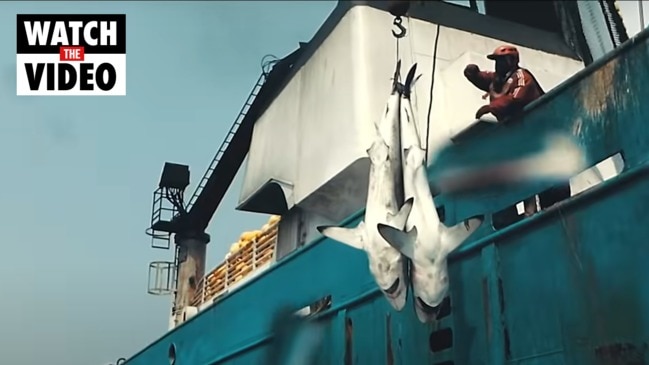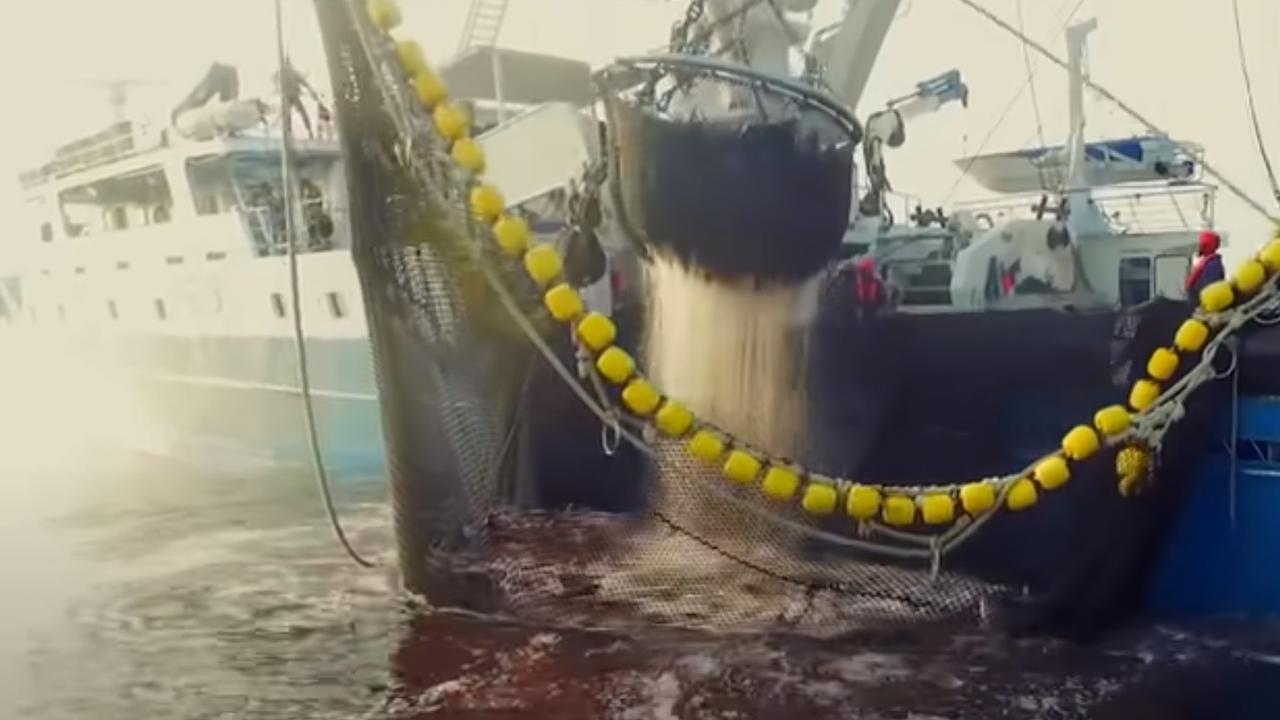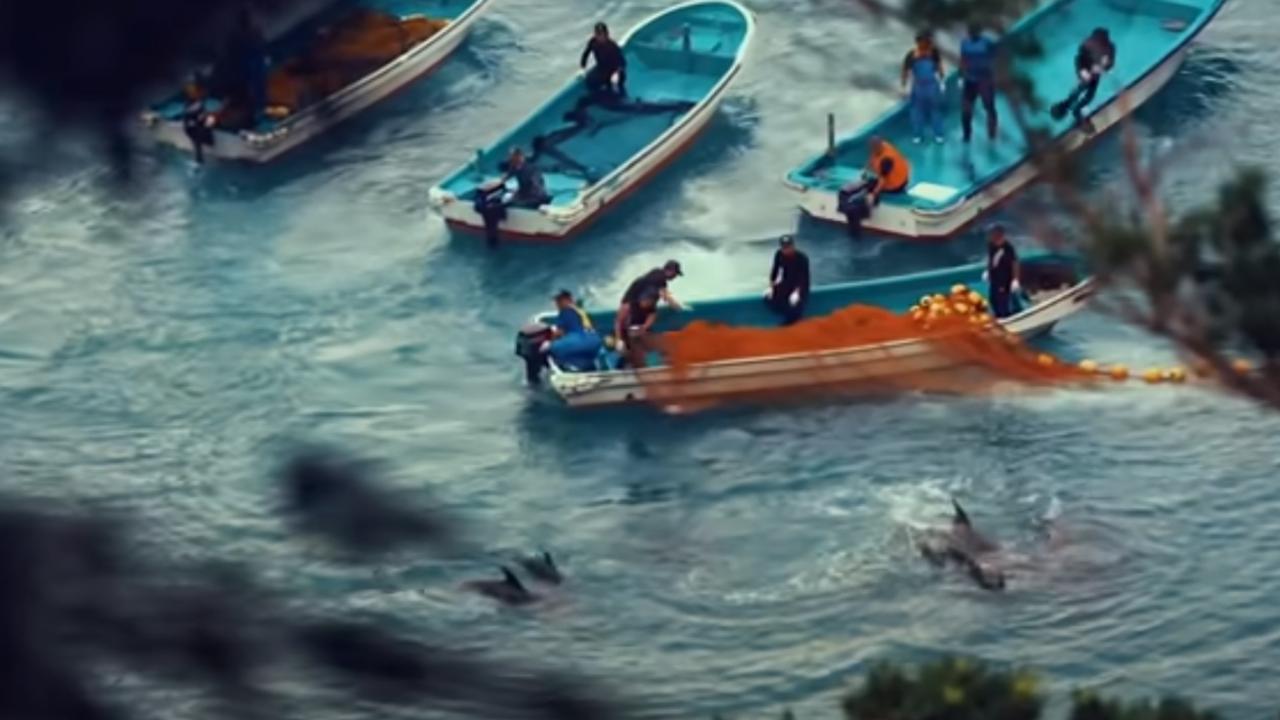Controversial Netflix doco’s ‘dim view’ of world’s ocean issues
A new Netflix film that tells people what they should do to solve a big problem has people hitting back at its wild claims.

A controversial Netflix documentary has been slammed for its “dim” view around saving the world’s oceans.
The popular Seaspiracy doco has made waves because of its call to action, which is for people to stop eating fish.
While the film has become one of the 10 most watched Netflix programs and been praised by celebrities including Bryan Adams, experts say its take on fishing being unsustainable is overly simplistic and ignores the good practices in the marine industry.
In the trailer for the doco, the fishing industry is compared to the blood diamond issue, labelled “blood shrimp”.
The description for the film says the British filmmaker, staunch vegan Ali Tabrizi, “sets out to document the harm that humans do to marine species – and uncovers alarming global corruption”.
RELATED: Experts warn we’re killing our oceans
Watch @seaspiracy on Netflix. #donteatfish#stopkillingfish#seaspiracy
— Bryan Adams (@bryanadams) March 26, 2021
But the documentary jumps between issues such as dolphin slaughter, shark finning, industrial bycatch, plastic waste and ocean acidification and concludes each is a symptom of overfishing.
Tabrizi believes people should stop eating fish in order to stop destruction of the ocean.
He told the Daily Mail it was shocking “learning just how far the fishing industry’s long shadow stretched”.
“By far the most powerful thing we can all do every single day to protect not just our ocean and its inhabitants, but the entire planet, would be to shift towards a plant-based diet,” he said.
Australian marine biologist Dr Bryce Stewart told The Guardian he was excited, like many scientists were, when he heard the film was coming out but “started to worry” a few minutes into watching it about the “misleading links” being made.
“There’s been a lot of backlash from the scientific community,” he said.
“The film made out sustainable fisheries don’t exist and that’s simply not true.
“We know at least two-thirds of the world’s fisheries are being fished sustainably.”
He said many of the studies used in the film were quite outdated and presented in a misleading way.
Dr Stewart said the claim ocean plastic pollution was largely related to fishing was “completely inaccurate”, saying the actual global figure was 10 per cent.
He also said many of the NGOs “doing fantastic things” were criticised and made to look bad.
“Maybe the biggest thing of all is it presented this simple solution that everyone should stop eating fish and that is OK if that’s what you want to do, but it’s just not viable for millions if not billions of people around the world,” he said.
Dr Steward said the film should have been presented in a fairer and more balanced way.
RELATED: How a 2C rise would change Australia

Duncan Leadbitter, Australian head of the Aquaculture Stewardship Council, said Seaspiracy took a “dim view of both wild and farmed seafood industries and the consumer certification schemes working with those industries”.
“Overall, a well-managed farm has very little impact on biodiversity, and producing farmed fish has the lowest greenhouse gas production per kilo of almost all animal proteins,” he said.
“Note that the biggest source of biodiversity loss on the planet, and particularly in Australia, and places like the Amazon, is land clearing for terrestrial agriculture.
“Of course, this doesn’t mean no one should eat plants – it means all food production has impacts and must be managed responsibly.”
Mr Leadbitter said farmed seafood was a hugely important industry that could be run ethically with a low carbon and low environmental footprint.
“We also think that well-managed aquaculture is in one of the best positions to continue to feed the world’s growing population,” he said.
RELATED: Seabin’s unusual catch in Sydney Harbour

“It’s always worthwhile to raise these important issues, but you also need to tell the whole story and be honest with people about the scale and complexity of the challenge, rather than just offer simple solutions.
“There are real solutions out there, as well as people, businesses and organisations such as ours who are actively working on them.”
Seaspiracy claims certification labels of some seafood indicating it was sustainably harvested, overseen by The Marine Stewardship Council, are“meaningless”.
“Contrary to what the filmmakers say, certification is not an easy process, and some fisheries spend many years improving their practices in order to reach our standard,” the council said in its response to the film.
“In fact, our analysis shows that the vast majority of fisheries that carry out pre-assessments against our criteria, do not meet these and need to make significant improvements to gain certification.”
Tabrizi and his wife Lucy now have a petition calling on the UK Government to create more ‘no-catch’ fishing zones.




